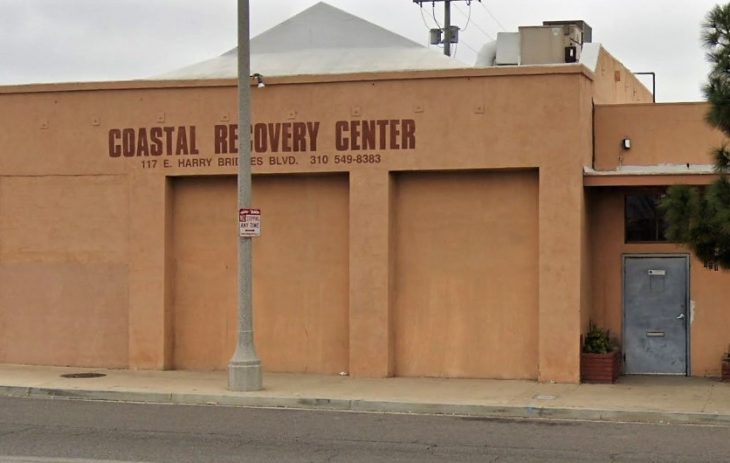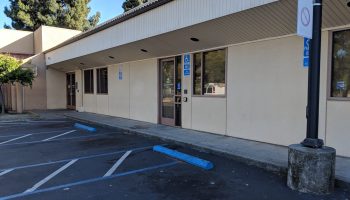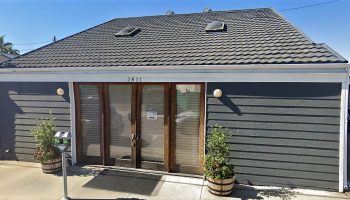About The Coastal Comprehensive Treatment Center
The Coastal Comprehensive Treatment Center provides outpatient opioid use disorder treatment in Wilmington, California. Adults of all genders who are 18 years of age and older can receive treatment. You’ll pass Wilmington Park on the way over from the 110. They’re pretty close to the East Basin.
The center is licensed and certified by the State Department of Health Care Services. Medi-Cal, Medicaid and Medicare are among the accepted health insurance plans. If you’re uninsured, you will be able to self pay for your treatment services.
In order to begin treatment, you must be in a withdrawal state and substance free for 24-48 hours. When you arrive for your intake appointment, you’ll take an assessment. The assessment will go over your substance use history, medical history, family history and your treatment goals. This is done to help identify your specific needs to develop your personalized treatment plan. This ensures that all your treatment needs will be met for a successful long term recovery.
I do like that you’ll have a complete physical exam done by one of the center’s physicians to help ensure your safety. I found it unique that the exam, along with drug testing, will also include tuberculosis testing. If you have proof that you have had a tuberculosis test in the last two years, then you can wave the test.
Once your assessment is complete, you’ll meet with a member of their medical team. They’ll help determine which of the three FDA approved medications will be best for you and your needs. These meds can ease your withdrawal symptoms and reduce cravings. That way, you can better focus on your recovery journey. The prescription that may be added to your treatment plan will be methadone, buprenorphine or Suboxone.
If you are pregnant, they will not deny you services. You’ll need to take a pregnancy test and have a letter from your OBGYN approving treatment services. You can’t be in a withdrawal state when you arrive for your intake appointment. I do like that they will help coordinate your care with the OBGYN and help you make arrangements if you don’t have an OBGYN.
Along with your medication assisted treatment (MAT) program, you will need to attend counseling services. Individual and group counseling will be added to your treatment plan to support your recovery. If you need some downtime, the Wilmington Recreation Center is a couple of blocks over. There’s a skate plaza, and the Ken Malloy Harbor Regional Park is a short drive away.
Levels of Care
-
Outpatient
In outpatient therapy, you’ll attend therapy sessions several times each week while living at home. This is ideal if you have a strong support system and a lower risk of relapse. Outpatient treatment offers flexibility to maintain work, school or family obligations.
-
Aftercare
Aftercare programs provide ongoing support after you complete a rehab program. They may include several components to help you maintain sobriety including therapy, community support groups and relapse prevention strategies. This gives you a network of resources as you reintegrate into your daily life.
-
Dual Diagnosis
Dual diagnosis programs address substance use disorders and co-occurring mental health conditions simultaneously. This integrated approach to care improves the likelihood of long term recovery and stability by addressing the root causes of addiction.
Detox Service Setting
-
Outpatient Detox
Outpatient detox gives you access to medically supervised withdrawal services while still allowing you to live at home. You’ll attend a clinic for treatment and monitoring. This flexible option is suitable for those with mild to moderate withdrawal symptoms who have strong support systems.
Programs
-
Adult (18+)
Adult programs address the substance use and life challenges specific to adults. Therapists can deliver sessions in individual, group and family settings. Services often include job support and life skills training in a structured environment.
-
Alcohol Detox
Alcohol detox programs offer medical support to help individuals withdraw safely from alcohol. Your care team may use medications to ease your symptoms and provide medical monitoring to address complications.
-
Cognitive Behavioral Therapy
Cognitive behavioral therapy focuses on changing harmful thought patterns and behaviors associated with addiction. You’ll learn healthier coping mechanisms by identifying and replacing negative thoughts. This improves your emotional resilience and decreases your relapse potential.
-
Men
Men's programs address substance use while also considering the social pressures, family roles and mental health concerns that are specific to men. You’ll learn healthy coping mechanisms as you build emotional resilience and develop communication skills.
-
Opioid Detox
Opioid detox uses medications to ease severe withdrawal symptoms. It also includes medical supervision to help you manage potential complications. These services allow you to stabilize and begin a recovery plan.
-
Rational Behavior Therapy
Rational behavior therapy helps you identify irrational beliefs that contribute to an addiction. Challenging and modifying those beliefs helps you develop healthier attitudes and behaviors. This therapy supports long term sobriety and sustainable recovery.
-
Women
Women's programs offer a safe and supportive space to focus on gender specific issues such as trauma, family roles and mental health conditions. Therapists tailor the sessions to address women's needs and foster empowerment in a healing and nurturing environment.
-
Young Adult (18 - 25)
Young adult programs are designed for individuals who are transitioning into adulthood. Topics of discussion typically include identity, independence and peer relationships. Providers may also offer life skills training and career support.
Payment Options
- Payment Assistance
- Medicaid
- Medicare
- Private Insurance
- Self Pay
Accreditations
-
 SAMHSA
SAMHSA
Contact
117 East Harry Bridges Boulevard
Wilmington, CA 90744





